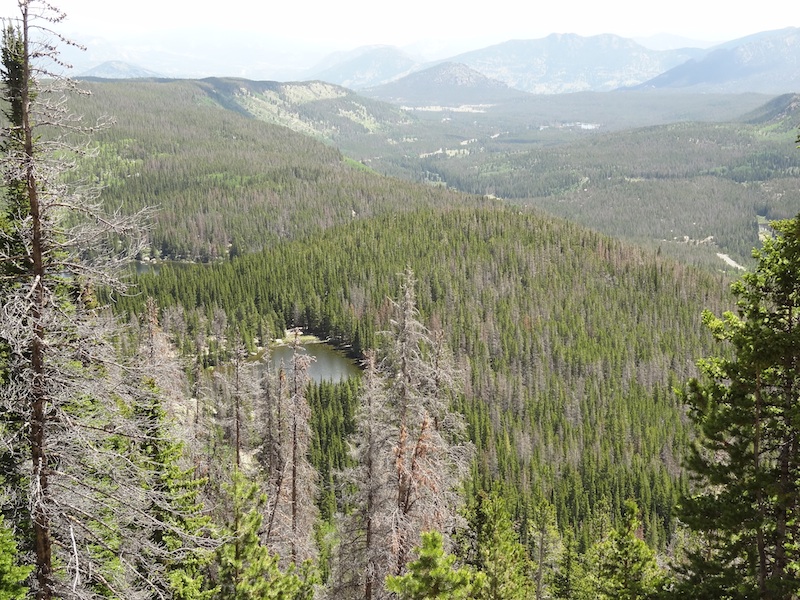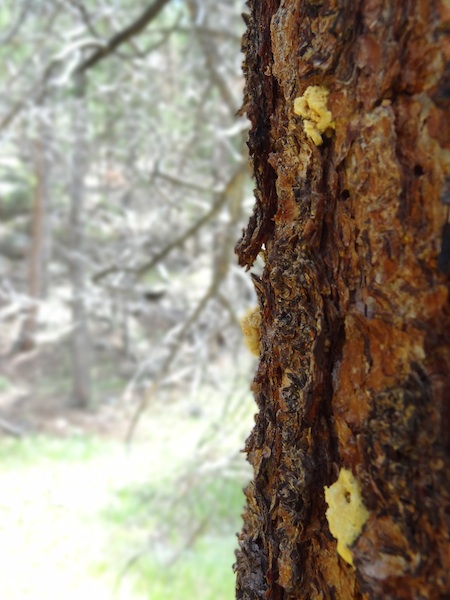 |
| Large scale impacts of the mountain pine beetle epidemic are shown in Rocky Mountain National Park. |
 |
| Close-up of "pitch tubes," the holes pine beetles bore into trees to lay their eggs. |
GOLDEN, Colo., Sept. 11, 2012 – A five year, $3 million National Science Foundation Water Sustainability and Climate program grant has been awarded to Colorado School of Mines researchers to examine the impact of the pine beetle devastation on vital watersheds in the Rocky Mountain west. The project will be led by Mines in collaboration with research partners from Colorado State University.
Researchers estimate beetle-killed trees will alter hydrologic and biogeochemical processes that govern water quantity and quality in forested headwater catchments, potentially affecting downstream user demands and challenging ecological and human health. This study’s findings will help towns and cities in the American west manage water rates and effectively improve watershed health.
According to principal investigator Reed Maxwell, Mines associate professor of hydrology in the Department of Geology and Geological Engineering and director of the Integrated Groundwater Modeling Center, the study will examine the potential water resource changes resulting from the mountain pine beetle epidemic by examining changes in climate, forested ecosystems altered by pine beetle impacts, biogeochemical processes and resource management practices.
The project abstract states: “More than four million acres of forest in Colorado and Wyoming are dying due to the ongoing mountain pine beetle infestation. While the visual impact of the dying and dead forests is stunning, the invisible changes to the water cycle in vital watersheds in the Rocky Mountain west, including the Platte and Colorado River headwaters, may be a longer lasting legacy.”
Mines will receive $2.3 million from the NSF, research partner Colorado State University will receive $600,000. The Colorado Higher Education Competitive Research Authority is providing $375,000 in matching funds. Co-principal investigators at Mines include Jonathan Sharp, assistant professor of environmental engineering, Alexis Navarre-Sitchler, assistant professor of aqueous geochemistry and Eric Dickenson, assistant research professor of environmental engineering. Collaborative work at CSU will be led by John Stednick, professor of watershed science in the Department of Forest and Rangeland Stewardship, Warner College of Natural Resources, CSU.
Contact:
Colorado School of Mines
David Tauchen, Public Relations Specialist / 303-273-3088 / DTauchen@mines.edu
Karen Gilbert, Director of Public Relations / 303-273-3541 / KGilbert@mines.edu
Colorado State University
Jennifer Dimas, Senior Communications Coordinator / 970-491-1543 / Jennifer.Dimas@colostate.edu
